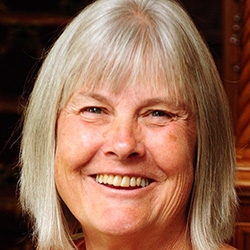
Search Results: fight
-
Listen to this introductory 4-session Mediate Your Life telecourse recording to change your response to conflict and change your life.
-
“Nonviolence” is not just a political tactic. It is a “soul force,” a courageous and compassionate stand in the face of what seems to us unjustly unequal, oppressive, and violent. It is the force of love meeting and transforming what appears to not be love.. It is the force of love meeting and transforming what appears to not be love. It is speaking and listening with courage, compassion, and an open heart and mind and rooted in our truth in a way that bridges understanding. And doing so without demand nor trying to convince -- all in the face of any anger, fear, oppression, inequality, violence or disagreement.
-
We can shift from being absorbed and identified with our inner chatter and feelings to being the space of awareness of these things. Observe your breath. Then observe your mind generating thoughts. Next, feel sensations of your body, particularly the difficult ones. Now, connect with the underlying energy of needs. Ask your unconscious mind for universal needs words related to what you now notice, think and feel.
-
The human species is trained and habituated towards separation. This model encourages humans to either give up on their needs or fight for their needs. In this short video, Miki shares how increasing capacity shifts habits of separation and supports holding of all needs. Through intensive lifelong practices we learn to increase our capacity to receive and to increase our capacity to be generous supports our overall capacity to hold all needs.
-
Conflict is a normal and natural part of life. To varying degrees, it happens whenever two or more people consistently spend time together. Resolving conflict effectively and peacefully, in a way in which all parties feel respected and valued, does not feel natural for those of us who grew up with punitive, adversarial, or avoidant approaches to conflict. Eric offers some tips for approaching conflict.
-
Trainer Tip: When we match might with might, we create discord, frustration, and separation from other people. Instead, place aside your urge to be right or to win. Approach charged situations with a sincere desire to be honest, and to value everyone’s needs including your own. The way you show up is a valuable asset. You may not get what you asked for but you can increase your chances of meeting your needs for integrity, and more.
-
- Explore what makes the capacity lens radical and practical
- Understand the complexities of how capacity and willingness interface
- Mourn capacity limits within and around us without jumping to conclusions
- Orient to agreements as behavioral anchoring in support of your commitments
-
So many of us have a habitual response of trying to eliminate uncertainty and the arrival of what we don't want. Alternatively, we can embrace the irreducible uncertainty of life. This shift from resistance and helplessness to mourning allows acceptance of outcomes, reduction of stress, and opens the door to noticing and appreciating what's present and available amidst challenges.
-
Dear friends,
#UnlockYourAuthenticVoice
This has been on my mind lately. What does it mean to unlock my authentic voice? How do I talk about things that matter to me without creating emotional distance between myself and others? I’ve found this especially challenging after the US presidential election this month— half the voters are devastated by Donald Trump’s election, and the other half are elated. The extremes are vast. Sometimes imagining a coming-together feels hopeless.
-
Transforming anger is a key practice for returning to conscious presence and connection with self and others when triggered into a reaction. Join John Kinyon to learn this essential life skill through the Enemy Image Process and Learning/Growth Spiral.
-

What are the most powerful things I can do to build an inspired relationship? I answered the question with romantic relationships in mind; however, I believe the answer below applies to all important relationships.
-
In our internal conversations, some voices dominate others, which can leave us feeling fragmented or overwhelmed. But when we dive beneath the surface and really listen to our many parts, we connect vulnerably to our full humanity.
-
Total inclusion is impossible: inclusion of all can often lead to exclusion of those who can't bear the behaviors of some. Many groups flounder and disintegrate because of too much inclusion. Limited resources and capacities may make it necessary to exclude. Keeping more coherent shared values and strategies may be another reason to place membership conditions so that what appears to be exclusion may give movements a chance to expand.
-
This anecdote illustrates how a young man had the social awareness to consider how male conditioning may bring up competitiveness in his interactions with another man. The young man offered transparency and checked for consent in a way that shows an embodiment of power-with, togetherness, consideration, care, collaboration... and all without displaying any formal NVC training, and without looking to impress.
-
During a crisis like the COVID-19 pandemic, we can draw upon inner and outer resources: gratitude, awareness of our senses and breath, plus compassion for self and others. We can also expand our understanding to curtail fear -- and limit the amount of time and energy we spend fighting and resisting the truth of what’s happening.
-
Listen to Miki Kashtan explain the importance of intention in developing our skill at creating solutions that work for everyone. Neither fighting nor giving up are qualities of nonviolence, but rather a fierce determination to hold the needs of all parties may arise.
-
Have you ever gotten a fishing line all tangled up? You got so frustrated you just started yanking on the different loops of line, which of course made the knots and tangles even tighter and more difficult to untangle. Wouldn’t it be great if you could notice the minute you were starting to tangle things up in a discussion with your loved one?
-
When we take a leap in life and put our hearts out into the world in new or bigger ways—sharing a song, dance, or poem, writing a book, competing at a sporting event, giving a speech, and so on—there is greater potential for aliveness but also for shame and pain
-
Grieving reminds us of the preciousness of life, it helps us integrate loss, and it opens us to deeper compassion, inspiration, and joy. We need to create space in our lives to grieve fully.
-
Trainer Tip: Wanting collaboration? Show you value the other person's needs as much as your own. After you both feel heard, you can make joint decisions about specifics of the agreement, such as "division of work", "scope of project", "when the action will take place", "how it'll be done" and "timing of follow up to see how things went". Read on for an example of how this is applied to asking someone to pitch in with doing chores.




















